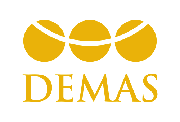DEMAS supports HRDN letter to European Parliament on increasing the resources of the thematic pillar in the NDICI (The Neighborhood, Development and International Cooperation Instrument) in the new Multiannual Financial Framework.
The Human Rights and Democracy Network (HRDN) is writing to you today to call upon you, during the ongoing negotiations on the Multiannual Financial Framework (MFF), to reject the cuts made by the European Council to the Neighbourhood, Development and International Cooperation Instrument (NDICI), and, in particular to the thematic pillar. We ask you, in that context, to increase the resources of the thematic programmes to 11.49% of the NDICI, in line with your 2018 negotiating mandate (by, for instance, reallocating funding from the Emerging Challenges and Priorities cushion, which suffered proportionally lesser cuts).
On July 17-21 2020, EU Heads of state and government agreed on their position on the 2021-2027 MFF. The European Council set the NDICI budget at €70.8 billion, which represents a 10% cut compared to the 2018 Commission proposal. Throughout the MFF negotiations, HRDN has advocated for an ambitious external action budget in order for the EU to address the rising challenges to human rights and democracy worldwide, including closing space for civil society. We strongly believe that the €8.2 billion cut proposed by the European Council to the NDICI will undermine the EU’s ability to fully live up to its commitment to protect and promote human rights and democracy, and to play a leading role in a changing geopolitical landscape.
HRDN is particularly concerned with the 9% cut to the already small budget of the thematic pillar (which includes the Human Rights and Democracy, Civil Society Organisations, Stability and Peace, and Global Challenges programmes), brought down to €5.7 billion. This €5.7 billion envelope should finance a wide array of global and transregional actions through Global Challenges, as well as the EU’s support to human rights and democracy, civil society organisations, and peace and security. €5.7 billion over 7 years is no match for the EU’s ambition to address the increasing challenges to human rights in the world, and is far below the Parliament’s 2018 position to allocate 11.49% of the NDICI’s budget to thematic programmes.
Human rights, democracy and equality face unprecedented pressure, further compounded by the COVID-19 crisis, which has exacerbated existing inequalities and discrimination, disproportionately affecting marginalised groups, and has been used as a cover to intensify the crackdown on independent voices. Civil society actors play a key role in helping the EU to achieve its external action objectives in the areas of development, humanitarian assistance, peacebuilding, inclusion, gender equality, press freedom, rule of law, human rights and democracy. Civil society actors are also at the frontlines to respond to and stem the spread of COVID-19. The EU Action Plan on Human Rights and Democracy 2020-2024 will likewise require a resilient civil society to implement its ambitious goals in light of today’s challenges. It is, therefore, all the more essential in this critical time that the EU continues to support civil society actors to fulfill this important role.

